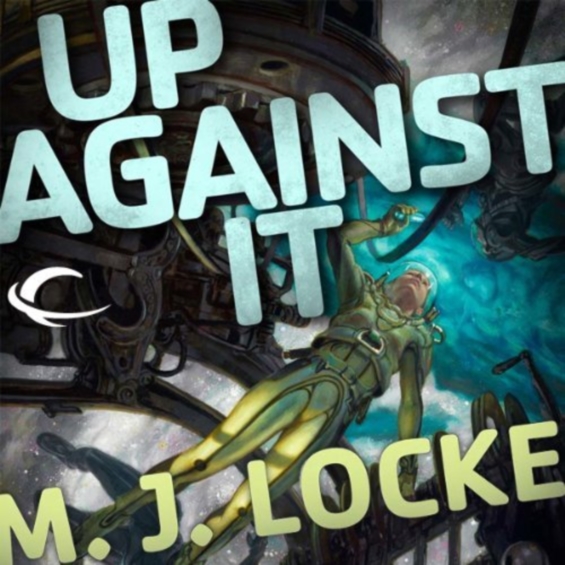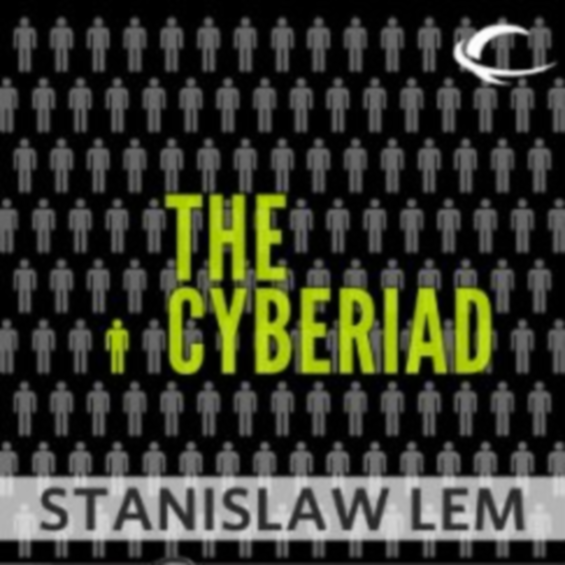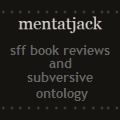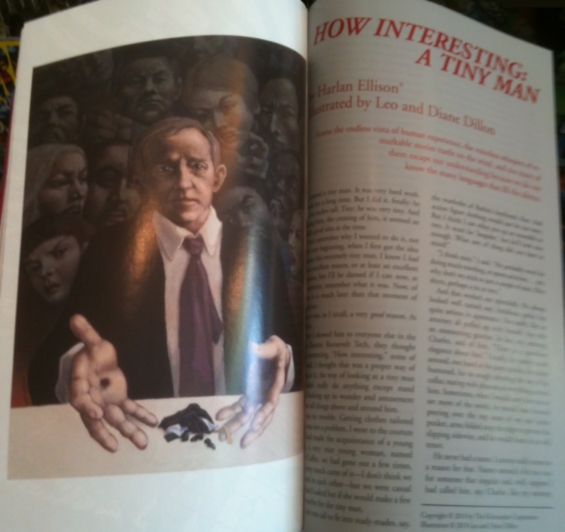
 The SFFaudio Podcast #251 – Jesse, Scott, and Tamahome discuss Up Against It by M.J. Locke.
The SFFaudio Podcast #251 – Jesse, Scott, and Tamahome discuss Up Against It by M.J. Locke.
Talked about on today’s show:
Hardcover, paperback, audiobook, who to blame?, it’s Jo Walton’s doing we chose this book (at the bottom), still a lot of juice in the genre, the ultimate cause, drawing in vs. pushing in, Corner Gas, a new wine bracket, the Radium Age of Science Fiction, Scott’s Goodreads review, Tam’s Goodreads review, 24, the characters, less torture, its more fun if you count the tropes, every trope is in there, including immortality, mimetic fiction (literary realism), Henry James, mimetic fiction in a science fiction universe, tiny infodumps, not one brand new idea, waveface virtual reality, Tonal_Z AI language (Chris Crawford’s Solvesol-interface concept?), in dialogue, Cory Doctorow (Whuffies), Bruce Sterling, Chris Crawford, Bruce Sterling’s Veridians (wow, it’s a whole big thing, design philosophy? manifesto), asteroid miner stories, Heinlein and later, The Island Worlds by John Maddox Roberts and Eric Kotani, The Moon Is A Harsh Mistress, there’s no newcomer, a generally agreed upon direction our future will be, John Scalzi’s brainpal, more than one kind of SF, rocket ships, the Charles Stross direction, Iain M. Banks, Souvenir by Philip K. Dick, Amish tech, their tech is subservient to their culture, it seems inevitable in our world, the received future, Earth in Up Against It in bad shape, Vancouver shantytowns, Edmonton, this isn’t a utopian book, dystopia, dystopic Earth, why are they in the Asteroid Belt, good world-building, good but not new, nothing new but the idea, incredibly self-aware people is weird (and cool), gene tampering, Oblivion is a good introduction to SF tropes (for people born in the year 2000), the level of SF tropes in movies is very low compared to those in SF books, Darwin Elevator, bad physics vs. excellent physics, sugar rocks, there’s no intro character (other than the A.I. pov), Little Brother by Cory Doctorow, collaborative teens, a visual adaptation, Ender’s Game, Planetes, Gravity, Babylon 5 had nothing new, I don’t go to TV SF for new ideas, books are where great ideas, what great ideas haven’t been explored, the news coming out of Eve Online, Steen Hansen, political machinations, gold farming, a simulated universe, a libertarian alliance was trojaned or something, happening to real people, World Of Warcraft, our real future is in leisure, Tam liked it more, nose-piercings, tattooing, the gender neutral pronouns, why would you want a purple nose?, Jesse doesn’t understand trans-humanism, normal readalongs, why didn’t I like this more, Tam liked it fine, hands for feet, chromes and mutes, Falling Free by Lois McMaster Bujold, not too bright in the brain area, The Integral Trees by Larry Niven, a planetless solar system, a mashup of Doctorow and Heinlein, smile -> erection, Chekhov’s Gun, Heinleinian sex vs. Doctorowian sex, there’s too much going on, an immature writer, Elmore Leonard, “she pillowed her cheek”, nobody pillows their cheeks in Jack London stories, Jane as an older Ripley, an artificial spiritual awakening, too many compromises too much bullshit, an authentically political book according to Staffer’s Book Review, double dealings, the thriller plot, exploring space, what does Scott prefer?, does Scott have a right to review Up Against It?, is it maturity?, 2312, Tobias Buckell’s blog essay about mature reviewers, caveats, “and get off my lawn”, idea fiction, competent but unstimulating, why is The Lord Of The Rings more interesting than Up Against It?, the themes, the next episode of A Good Story Is Hard To Find, Luke Burrage re-reviews A Canticle For Liebowitz, what we do when we do READALONGS (we unpack books), The Odyssey, Community, currently airing TV series have podcasts?, books with allegories, Scott wants it to mean something to him, The Zimmerman Telegram by Barbara Tuchman, WWI, the German ambassador in Mexico, Woodrow Wilson, Tom Clancy, mimetic fiction from the future, a history from the future, history, in some ways Eve Online is much more real than any fiction book, Scott finds value in general fiction, Mario Puzo, Tom Wolfe, Ernest Hemingway, John Steinbeck, meaning vs. ideas, horror, Snowblind by Christopher Golden for some alternative horror, The House Of The Seven Gables by Nathaniel Hawthorne, The Turn Of The Screw by Henry James, gothic fiction, witchcraft, Supernatural Horror In Literature by H.P. Lovecraft, there’s still potential for Science Fiction, a sequel?, an unneeded sequel, every subsequent milk of a book undercuts it, Dune has been worsened by every Dune that’s come since, Dune Messiah (Scott liked it), the fall of a charismatic leader, a backward casting shadow, Brian Herbert has done what his father wanted by ruining Dune?, why was Up Against It so long?, YA/adult book, George R.R. Martin doesn’t think Scott’s a fan of Hard SF, The Martian by Andy Weir, Phoecea, why are they mining?, there’s no economic reason to do so, was there an economic reason to go to the moon, we need to build a space fleet, no martian resources are unavailable on Earth, the Moon has Helium-3, Tam read Frank Schatzing’s Limit and his eyes are tired, what the frack, (was it ‘Simon pure science fiction like A Darkling Sea‘? we didn’t talk about it but I thought I’d note it)
Posted by Jesse Willis







